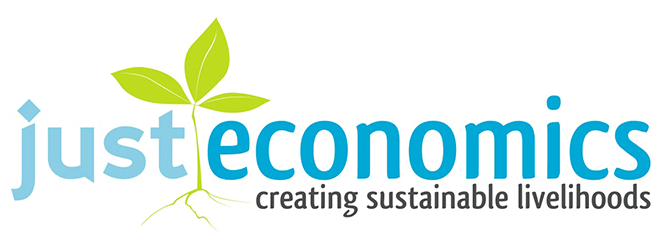Tuesday, May 25th, the Asheville City Manager’s budget was introduced and June 8th, the public will get a chance to weigh in on the budget during the public hearing. The final vote on the City of Asheville’s budget for the fiscal year beginning July 1st, will take place on June 22nd.
You can view the City’s powerpoint on the budget here and review the budget documents here.
A Couple Things to Remember about public budgets:
When thinking about the City budget, there are a couple things to keep in mind.
First, you will hear the words “Fund Balance” several times. Every year the City creates a balanced budget and makes, what they hope to be, conservative projections on what they will spend so that they don’t go over budget. This usually means that at the end of the year there will be money that wasn’t spent that becomes part of the Fund Balance. The Fund Balance from previous years (the unspent budgeted money from the last budget cycle) is often used for one time expenses or put into the longer term Fund Balance – which is like the City’s savings account. The City of Asheville works to maintain a long term Fund Balance of at least 15% of the projected budget. Last year, the City had to dip into that long term Fund Balance due to COVID 19, but it is good practice to keep a long term fund balance in case the City falls on unexpected financial difficulties and to maintain a good credit rating.
It is also important to remember that some expenses are on-going or operational expenses, meaning that we will have those expenses next year and the year after that and so forth. Things like staff salaries, electricity, fuel and the cost of transit service are all examples of on-going operational expenses. Some expenses however, are one time or capital expenses. Things like buildings, fire trucks, studies and body worn cameras are examples of one time expenses. Sometimes these expenses will happen more than once, but they are not regular expenses we need every year. Big expenses like property, pools, or buildings may go into the Capital Improvement Projects budget (CIP) and will be paid over time, sort of like how you might pay a mortgage.
Just Economics’ hosts a public budgeting workshop to help understand how public budgets work and how to engage in the process. You can check out a quick presentation here.
The Asheville City 21-22 Budget Highlights Just Economics Issues
This year’s Asheville City budget includes several things Just Economics has been advocating for including:
- Living Wages for City Employees including Firefighters: The City of Asheville has a living wage policy that was updated in 2013, though recently firefighters were not paid the hourly living wage rate. Just Economics has been in solidarity with Asheville Firefighters asking for an hourly living wage (check out this edition of policy minute on the issue). Additionally, Just Economics’ living wage rate increased in 2021 to $17.30 or $15.80 for employees offered health insurance and we were hoping the City was going to keep up with their policy by honoring this living wage rate. This budget includes the implementation of the wage and compensation study, including keeping up with the living wage rate and giving firefighters a much needed bump in pay. While the implementation of the wage and compensation study recommendations comes with a big price tag ($7.9 million), we believe that it is important for the City to be a leader in this region in paying a living wage. Furthermore, around 85% of the money proposed for wage increases are for City employees making less than $60,000 a year.
- Paid Family Leave: Just Economics has been advocating for a paid family leave policy for public employees along with local partners and the statewide NC Families Care Coalition. (Check out this edition of policy minute on this issue) Buncombe County passed a pretty great policy in November and we have been advocating for a City policy to do the same. Thanks to the advocacy of our members, the work of our partners, and the City staffs’ willingness to work with us, this budget includes the same policy that the County passed. If this remains in the budget, this is a big win for City employees and a great example for other employers in the region in regards to family friendly workplace policies.
- Transit Funding: Both of our major asks for the Asheville transit system are included in this budget proposal: extended evening service hours and increased frequency to South Asheville. (Check out this policy minute on this issue) While the first couple years of the Transit Master were front loaded with the big and important changes to transit, the City did not approve all of the first year of this plan and then took a pause on transit expansions during the pandemic. Extended evening service (getting all routes to 10pm) and buses coming more often to South Asheville have been long-time and repeated requests of riders and ranked as the top 2 needed changes just this month as we collected input from riders. This will be a big win for our Better Buses Together campaign and transit riders, a majority of whom are low-income.
Concerns About the Budget
While all of the major priorities of Just Economics are being funded in this proposed budget, many community members and allies have concerns including:
- Whether or not the City is spending enough to get a reparations fund started
- Whether this budget goes far enough to address environmental concerns
- If the City is putting into practice efforts to truly reimagine public safety
- Whether a property tax increase is fair, just, and necessary
One of the major concerns we’re hearing is regarding the proposed property tax increase. This budget proposes a 3 cent above revenue neutral property tax increase. This is complicated because this is a year that the County did a re-evaluation of properties and assigned a new tax value. So some properties valued much higher than they did last time and many of the properties that were valued at a much higher rate (percentage wise) than last time were in historically black neighborhoods. The City is required to identify the “revenue neutral” rate, meaning the tax rate that would bring in almost the same amount as last year (with an inflation adjustment). The City Manager’s budget proposes a tax rate that is 3 cents higher than the revenue neutral rate – meaning most people will see their property taxes increase.
While many people understandably have concerns about this, it is important to note a couple things. First, the City’s largest source of revenue is property taxes. When there is a proposed increase in the budget it most likely needs to come from either cuts in other areas or increases in property tax, sales tax, or fees. Additionally, property taxes are still a tax where the people with the most expensive (tax assessed) properties pay the most.
Just Economics is not advocating for or against the property tax increase and we are absolutely concerned about the impact on poor and marginalized communities. These are difficult decisions that require community input.
Where Do We Go From Here?
Just Economics is advocating that the City Council approve a budget that includes a living wage for all city employees including firefighters, a paid family leave policy for City employees, and the much needed transit improvements. We encourage you to support these issues by contacting City Council members through emails, phone calls or public comment at the June 8th meeting of City Council.
We also applaud the City in considering options to mitigate the negative impact of a property tax increase on low-income homeowners. We encourage the City to continue to explore every tool available in that mitigation process.
Finally, we appreciate and will continue to invite and participate in continued community conversations about the City budget and other public decisions. The City budget reflects how our public money is spent. Your voice and opinions matter!


